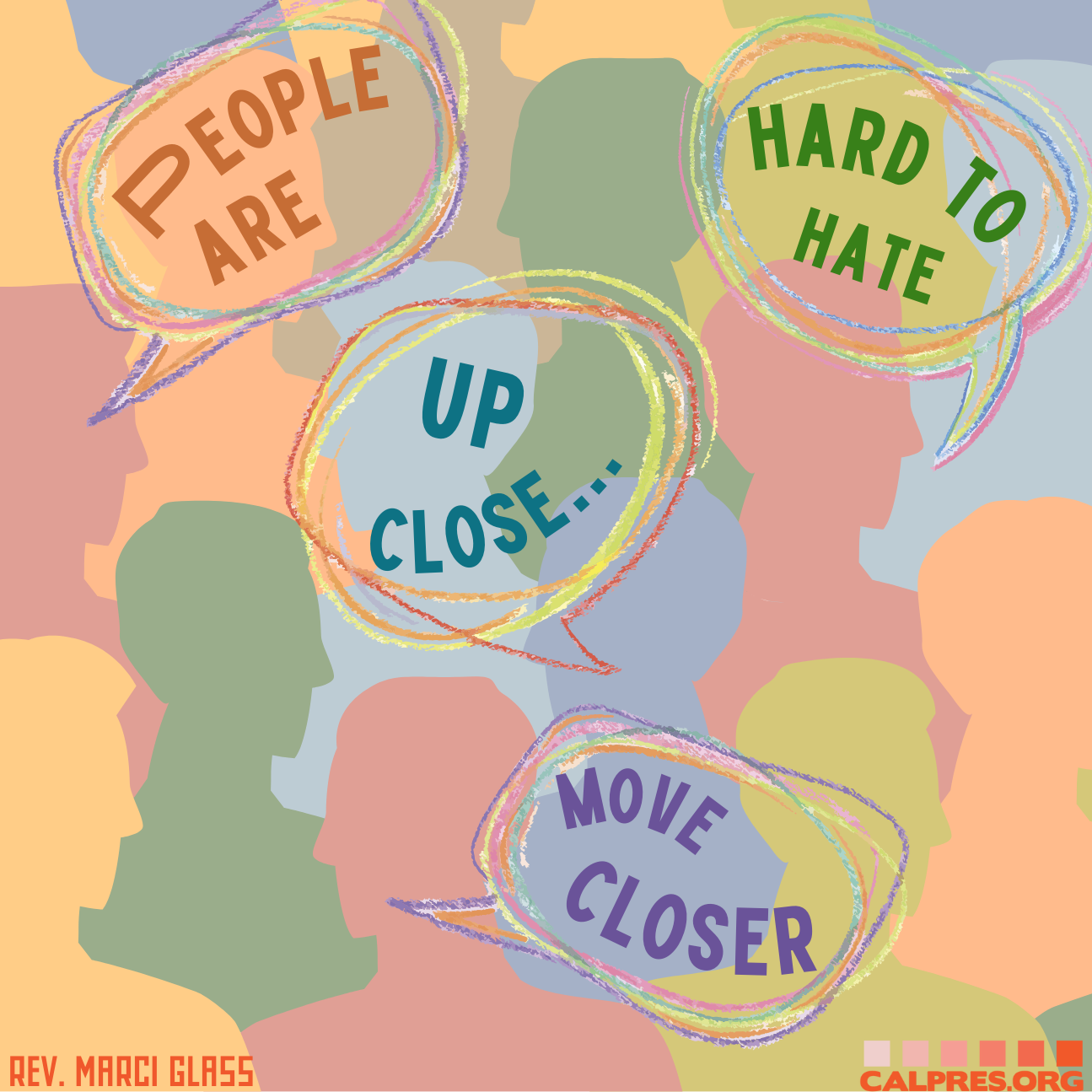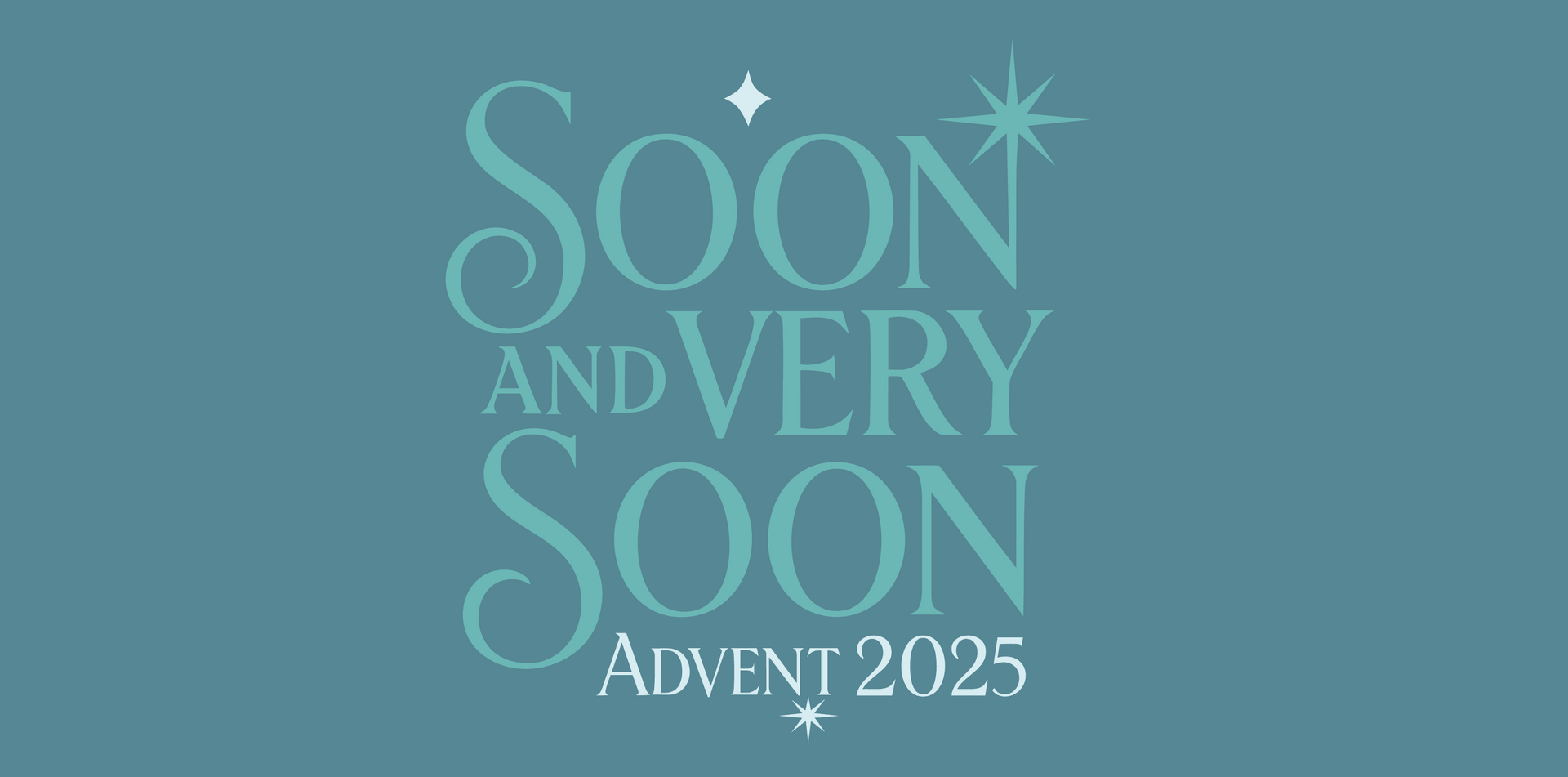Sermon 01.21.2024: A House United
Early in Mark's gospel, the crowds are big. They are following Jesus everywhere he goes. But the crowd isn't of one mind. It is a house divided and Jesus says that a house divided cannot stand. Some of the crowd want healing. Some of them are conspiring to destroy him.
We also live in a world that isn't of one mind. And we feel the crush of that division. What does it take to be a house united in a world that feels crowded with conflict?
Scripture
Mark 3:7-35
A Multitude at the Lakeside
Jesus departed with his disciples to the lake, and a great multitude from Galilee followed him; hearing all that he was doing, they came to him in great numbers from Judea, Jerusalem, Idumea, beyond the Jordan, and the region around Tyre and Sidon. He told his disciples to have a boat ready for him because of the crowd, so that they would not crush him; for he had cured many, so that all who had diseases pressed upon him to touch him. Whenever the unclean spirits saw him, they fell down before him and shouted, ‘You are the Son of God!’ But he sternly ordered them not to make him known.
Jesus Appoints the Twelve
He went up the mountain and called to him those whom he wanted, and they came to him. And he appointed twelve, whom he also named apostles, to be with him, and to be sent out to proclaim the message, and to have authority to cast out demons. So he appointed the twelve: Simon (to whom he gave the name Peter); James son of Zebedee and John the brother of James (to whom he gave the name Boanerges, that is, Sons of Thunder); and Andrew, and Philip, and Bartholomew, and Matthew, and Thomas, and James son of Alphaeus, and Thaddaeus, and Simon the Cananaean, and Judas Iscariot, who betrayed him.
Jesus and Beelzebul
Then he went home; and the crowd came together again, so that they could not even eat. When his family heard it, they went out to restrain him, for people were saying, ‘He has gone out of his mind.’ And the scribes who came down from Jerusalem said, ‘He has Beelzebul, and by the ruler of the demons he casts out demons.’ And he called them to him, and spoke to them in parables, ‘How can Satan cast out Satan? If a kingdom is divided against itself, that kingdom cannot stand. And if a house is divided against itself, that house will not be able to stand. And if Satan has risen up against himself and is divided, he cannot stand, but his end has come. But no one can enter a strong man’s house and plunder his property without first tying up the strong man; then indeed the house can be plundered.
‘Truly I tell you, people will be forgiven for their sins and whatever blasphemies they utter; but whoever blasphemes against the Holy Spirit can never have forgiveness, but is guilty of an eternal sin’— for they had said, ‘He has an unclean spirit.’
The True Kindred of Jesus
Then his mother and his brothers came; and standing outside, they sent to him and called him. A crowd was sitting around him; and they said to him, ‘Your mother and your brothers and sisters are outside, asking for you.’ And he replied, ‘Who are my mother and my brothers?’ And looking at those who sat around him, he said, ‘Here are my mother and my brothers! Whoever does the will of God is my brother and sister and mother.’
Sermon Text
I mentioned a few weeks ago that the gospels of Matthew and Luke start out the story of Jesus with accounts of a little bitty baby in a golden fleece diaper, shepherds or angels in attendance. They give us a while to get used to Jesus.
That is generally how kids make it to adulthood, right? Because their parents knew them when they were cute little babies?
I kid. I kid.
Sort of.
Mark doesn’t care about our first impression of Jesus. He isn’t going to make us feel comfortable with Jesus.
He has a story to tell about him and he has no time to waste.
We began a few weeks ago with John the Baptist in the wilderness proclaiming repentance. And immediately, Jesus sets off on his mission, gathering disciples, healing people, drawing these really large crowds, eating with sinners, and speaking uncomfortable truths.
These really large crowds want something from Jesus. They are pressing in on him, seeking healing, seeking hope, seeking comfort. They are digging holes in roofs and dropping their injured friends down into the room where he is staying so he can heal them.
But the crowd is not of one mind.
Today we’re told his family members were trying to restrain him, to bind him up, because he must have gone out of his right mind. And scribes from Jerusalem are also in the crowds, whispering rather loudly that Jesus is possessed by demons, and that what looks like healing is actually demonic power.
This is a physical text. Crowds pressing in. Sweaty, smelly bodies in close quarters. People wanting to grab hold, to restrain, to physically control Jesus.
And it reminds me our faith is a physical faith. It is not just about ideas and the work of the mind. It is about how we live together in close quarters, and how we do when we bump up against each other, against people who see and understand the world differently than we do.
One person’s healing is another person’s demon possession, after all.
One person’s gratefulness for the crowd that allows them access to Jesus is another person’s concern that because of the crowd, Jesus won’t even be able to eat dinner and get a night’s sleep.
Crowds are fickle things. They often move as one organism, but a crowd can’t think. People in a crowd just react.
Jesus doesn’t try to address the crowd. He doesn’t say “calm down people. Stay off my mom’s lawn. Please line up over here.”
None of that. He speaks in parables. And the text says “Jesus spoke to them”, but it doesn’t say exactly who “them” is. The crowd is a singular noun, not a plural them. I think Jesus was talking to his twelve apostles he’d just called. If other people listened in, that was fine. But Jesus is focused. He has a short time to teach his people what he needs them to know.
‘How can Satan cast out Satan? If a kingdom is divided against itself, that kingdom cannot stand. And if a house is divided against itself, that house will not be able to stand. And if Satan has risen up against himself and is divided, he cannot stand, but his end has come. But no one can enter a strong man’s house and plunder his property without first tying up the strong man; then indeed the house can be plundered.’
No matter what you believe or don’t believe about demons, Jesus’ point here is that if a house is divided against itself, that house will not be able to stand.
Sadly, it isn’t hard to come up with images of division. Our political system is so broken—do any of us still believe much good will come out of the halls of congress unless something changes? I can barely watch the news anymore, as my desire to stay healthy is at odds with my desire to be informed.
We see division and brokenness much closer to home too, in our own relationships and lives.
And the Presbyterian Church USA, the church that has nurtured and sustained me my whole life long and whom I gratefully serve now—we have known division too.
We first split into Northern and Southern Presbyterian Churches during the Civil War, although church leaders said it was about different views about governance, not about slavery. But we quickly came back together only 120 years later in the 1980s to become the denomination we are a part of. There are other Presbyterian denominations that split away from the main church over women’s ordination, over inclusion of people who are LGBTQIA, and many other differences. There are almost 40 denominations in the US that have Presbyterian in their name.
The story we heard today began with Jesus calling from amongst his followers the first 12 disciples. From that beginning to now, there are more than 45,000 different Christian denominations in the world. Some of that makes sense. Different cultures, countries, languages, etc. But some of it just feels divisive. And silly, if we’re honest.
You read the Bible wrong.
You let women preach?
You have a drum set in the sanctuary?
You worship on Saturday?
I don’t know how many of you are fans of Monty Python, but there’s a sketch in the movie The Life of Brian, a movie about a guy named Brian who was born the same day as Jesus. Somewhat heretical hijinks ensue. But the groups that are fighting the Roman occupation can’t even be united. The People’s Front of Judea is at odds with the Judean People’s Front. One character says, “the only people we hate more than the Romans are the People’s Front of Judea!”.
Division is easy for humans.
Jesus said:
No one can enter a strong man’s house and plunder his property without first tying up the strong man. Then, indeed, the house can be plundered.
Those are the consequences to division and fighting. We could be a strong man. It sometimes feels instead like we’re bound and gagged, locked in a closet, while people carry off our candlesticks.
At the same time, there are things for which it is worth our trouble to stand up and speak out. Even at the cost of division.
The trick, of course, is figuring out when we are standing up for the gospel and when are we being jerks.
Every single one of us is wrong about something we’re convinced we are right about. Are we willing to look at our own beliefs honestly?
All of us, no matter how we see the world, are standing together in the crowd, trying to get closer to Jesus, trying to get healing—for ourselves or for our friends. We’re still going to be bumping up against each other, though, unless we can find a way out of the crowd and into relationship.
And at the end of this passage, Jesus offers us a way to move forward together.
At first glance, though, it is a bit difficult to hear. Jesus is talking to the crowd and is told, “Your mother and your brothers and sisters are outside, asking for you.”
And he replied, ‘Who are my mother and my brothers?’ And looking at those who sat around him, he said, ‘Here are my mother and my brothers! Whoever does the will of God is my brother and sister and mother.’
I admit, it doesn’t look like a path to unity. And I don’t recommend any children hearing this sermon should start saying things like that to their parents.
The passage began, though, when Jesus went home and the crowd was so strong, pressing in on him, that it says they couldn’t even eat. One could imagine Mary had some legitimate concerns about her rhododendrons as these people kept climbing over them to get to Jesus.
If Jesus’ mother and brothers had heard the stories of what happened when holes were dug in that guy’s roof in chapter 2, we could imagine they might have concerns about their future home repair bills.
Their concerns about their comfort, their home, their peace and quiet were decidedly different than Jesus’ concerns about teaching, and healing, and sharing the kingdom of God with all of those people, those strangers, those people who were not family.
As much as I sympathize with Mary, as much as I am certain I would likely respond in the same way—Jesus, I’m glad you’re so successful at your new job but do your ‘friends’ need to step on my rose bushes? Can’t they make an appointment because our dinner is getting cold?—I also see how Mary and his brothers are completely missing the point.
The time to seek God’s kingdom is NOW. The time to offer healing to people is NOW. The time to follow Jesus is NOW.
You can choose to be about your own agenda and your own comfort OR you can choose to be with Jesus, listening to his teaching, following him into discipleship.
And when we do that, we become family.
Who are my mother and brothers? Whoever does the will of God is my brother and sister and mother.
This doesn’t mean his actual family is excluded. It does mean we can’t prioritize their historical relationships if those relationships lead people to ignore God’s call.
What would it mean for us to see the “other”, the people jostling against us in the crowd, as mother and father, brother and sister?
Can we set down our self-righteousness that divides and pick up our kindness, which unites?
Instead of seeing people as competition for Jesus’ attention and for his healing, what would the world look like if we saw them as family, and sought their flourishing as well as our own?
On a basic level, to be a house united relies on trusting in the abundance of God. Do we trust God has enough love, mercy, and grace for us and for everyone else in the crowd?
I’m a relative newcomer to Calvary, having only been here 3 years. From my perspective, Calvary is a house united, more or less. We have good energy here these days, and the leadership has been able to discern our path with clarity and with healthy levels of disagreement. And we are a house united because of you, because you bring your spirit of willingness and trust and hope that we are seeking God’s direction in what we do. But if you’ve been here a while, you can remember seasons of division too.
And when we have disagreements, the call of Christian life isn’t to sweep them under a rug or pretend they aren’t happening. Our call is to turn toward the people from whom we want to turn away. It requires us to be vulnerable. To be able to tell someone when you have been hurt. And to apologize when you are the one who did the hurting. People are hard to hate up close. Move closer.
This summer we had protestors outside of the sanctuary, yelling at people trying to come to worship. They weren’t exactly a crowd, but they sought division.
And here’s the interesting thing. They weren’t successful. Y’all didn’t take the bait. They stood outside, after they were told their rhetoric wasn’t allowed in the building. And you took them birthday cake and offered them coffee.
They wanted to shut us down but people from the community and the congregation came back to church the next week, deciding not to be intimidated by their yelling.
Victor and I met with a few of the protestors. We didn’t change each other’s minds about how to interpret scripture, but we shared stories. And I understand their motivations better now and can even have some compassion for what brought them to the conclusions they are holding. I can hope they understand us better too.
Being united didn’t require us to yell louder than they were yelling. It didn’t require us to declare them our enemies. It just required us to know who we were, what brings us together and holds us together—what makes us family. It required us to treat them as family too, no matter how they treated us.
Being united doesn’t mean everyone has to agree about everything. It means we have to listen to each other and compromise here and there on the little things so that we can be united on the big things.
Being united doesn’t require every other congregation to be like us too. We just have to know who we are, and whose we are.
Jesus didn’t try to talk to the crowd, as a crowd. And I think sometimes we lose that in our culture. We think if we can appeal to the biggest number, we’ll be better. Jesus was not concerned about the crowd. He was there to call together people to be a family. Remember how Mark described the calling of the 12: “He went up the mountain and called to him those whom he wanted, and they came to him.”
A house divided cannot stand. A house united, as family, is strong and exhibits God’s kingdom for the world. Let’s go out into the world to share the good news in a way that will strengthen God’s kingdom, trusting that God’s mercy is enough for us and enough for us all. Amen.
(For Love in a Time of Conflict, From To Bless the Space Between Us, John O’Donohue)
When the gentleness between you hardens
And you fall out of your belonging with each other,
May the depths you have reached hold you still.
When no true word can be said, or heard,
And you mirror each other in the script of hurt,
When even the silence has become raw and torn,
May you hear again an echo of your first music.
When the weave of affection starts to unravel
And anger begins to sear the ground between you,
Before this weather of grief invites
The black seed of bitterness to find root,
May your souls come to kiss.
Now is the time for one of you to be gracious,
To allow a kindness beyond thought and hurt,
Reach out with sure hands
To take the chalice of your love,
And carry it carefully through this echoless waste
Until this winter pilgrimage leads you
Towards the gateway to spring.

Art by Rachel Wolf











